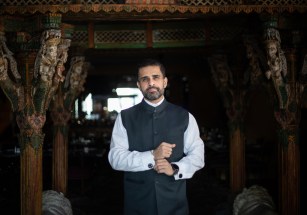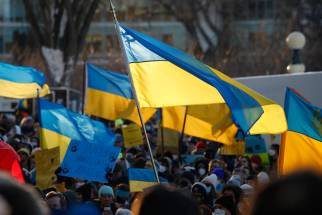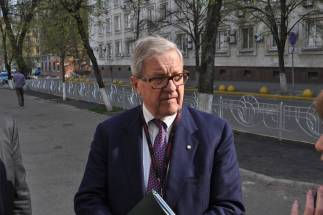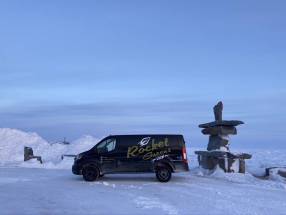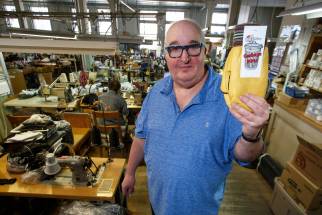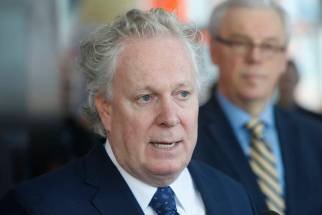Heartbreaking to see Ukraine wracked by war once again
Read this article for free:
or
Already have an account? Log in here »
To continue reading, please subscribe:
Monthly Digital Subscription
$0 for the first 4 weeks*
- Enjoy unlimited reading on winnipegfreepress.com
- Read the E-Edition, our digital replica newspaper
- Access News Break, our award-winning app
- Play interactive puzzles
*No charge for 4 weeks then price increases to the regular rate of $19.00 plus GST every four weeks. Offer available to new and qualified returning subscribers only. Cancel any time.
Monthly Digital Subscription
$4.75/week*
- Enjoy unlimited reading on winnipegfreepress.com
- Read the E-Edition, our digital replica newspaper
- Access News Break, our award-winning app
- Play interactive puzzles
*Billed as $19 plus GST every four weeks. Cancel any time.
To continue reading, please subscribe:
Add Free Press access to your Brandon Sun subscription for only an additional
$1 for the first 4 weeks*
*Your next subscription payment will increase by $1.00 and you will be charged $16.99 plus GST for four weeks. After four weeks, your payment will increase to $23.99 plus GST every four weeks.
Read unlimited articles for free today:
or
Already have an account? Log in here »
Hey there, time traveller!
This article was published 28/02/2022 (1379 days ago), so information in it may no longer be current.
I didn’t grow up around many other Ukrainian-Canadians. So as a child, visiting my grandparents in Garden City, I didn’t know what to make of my baba who was a little different from my friends’ grandmothers.
She wore a braid as a crown on her head, with a flowered scarf overtop every time we left the house. She insisted all my dresses have crinoline and that I always wear wool socks. She hid whatever spending money she had around the house in case of emergencies. She stockpiled food.
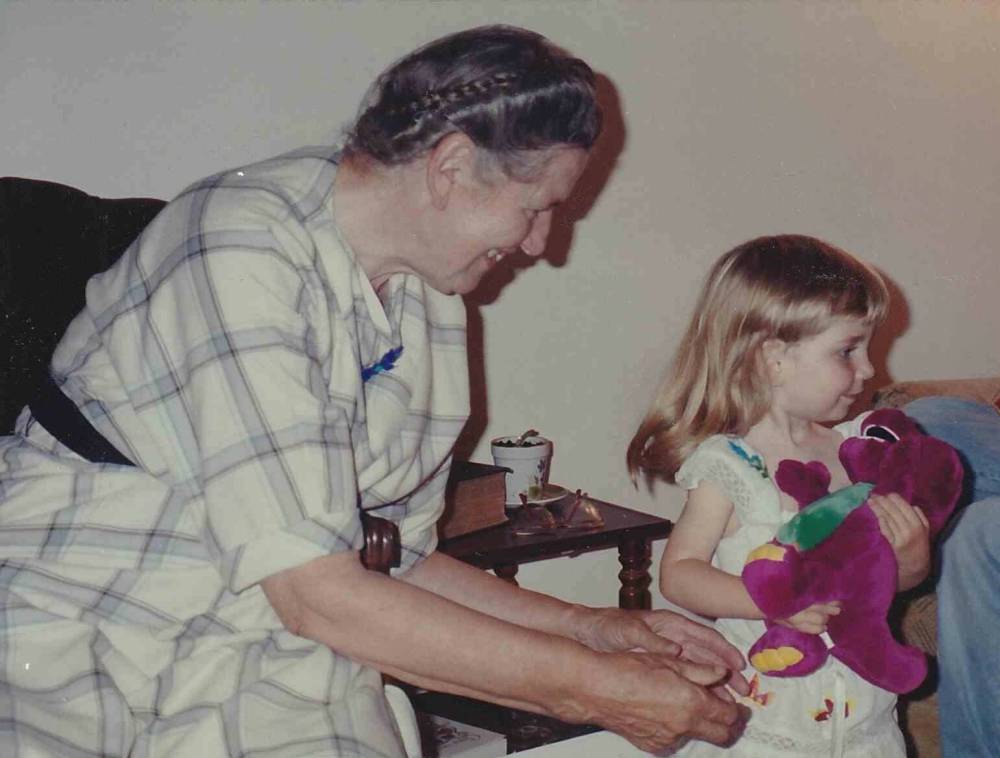
Even at 6 or 7, I knew she had lived through a war, but that was all I understood. I didn’t know what post-traumatic stress or depression was. I didn’t understand why she received rounds of electroshock therapy. I didn’t understand that the horrors she’d lived through in the Second World War had shaped her life, my father’s life, and my own.
It’s a darkness that’s gripped my entire family in oblique ways ever since. The wounds of intergenerational trauma of the Second World War have only begun to firmly heal in my family, some seven and a half decades later.
As I watch the images flash across my TV — people dead in the streets, people sleeping in the metros, people queuing to leave their homes and flee to Poland, families hugging their fathers and brothers goodbye — I’m heartbroken that another three or four generations of Ukrainians now face the same healing journey that’s plagued my family, and countless Ukrainian-Canadian families that fled the last time the country was thrown into war.
I’m heartbroken that another three or four generations of Ukrainians now face the same healing journey that’s plagued my family, and countless Ukrainian-Canadian families that fled the last time the country was thrown into war.
My baba had an intense love of Ukrainian people, of the language, and of the culture. But she was very adamant that she, and no one from her family, would return to the place where she’d lived through the atrocities of war. Death, destruction, sexual violence and forced labour under Nazi rule at an orphanage in Hamburg, Germany where she cared for malnourished children that had lost everything.

She did not wish for any of us to return to that place.
But I’m stubborn, like she was. Years after her death, I became the first of my family to return to Ukraine. I don’t remember what I was expecting when I got off the plane in Kyiv two and a half years ago.
I visited a park filled with art sculptures — cats and zebras that looked like they were straight out of Alice In Wonderland, cherub-looking boys urinating in big rainbow arcs under which you could walk. I went to the churches that rival the grandeur of the Vatican. I ate my weight in borscht and other forms of beets. I sat and listened to musicians at a fall festival in the street, and I frequented as many of the city’s magnificent bakeries and wondrous candy stores as I could.
Whatever I was expecting, it wasn’t this. I did feel remarkably at ease, at home, even though I have no close relatives still alive there. But the relief of healing and returning to the country was muted, since I was not there for leisure, but rather as a reporter, there to cover yet another war in Ukraine.
Here in Canada, we can act shocked that an all-out invasion occurred, but the truth is that Ukrainians have warned us for years of Russian President Vladimir Putin’s ambitions to pull the entire country back into Russia’s control. They’ve warned us their country would slip away piece by piece, but seemingly no one cared.
Here in Canada, we can act shocked that an all-out invasion occurred, but the truth is that Ukrainians have warned us for years of Russian President Vladimir Putin’s ambitions to pull the entire country back into Russia’s control.
While in Kyiv, I spoke with a British military consultant that was working with the Ukrainian military, Glen Grant. He worked alongside Canadian military trainers at the time, and he said words that continue to haunt me, because remember, he said them in Oct. 2019.
“If [Russia] thought that Britain, Canada, Germany and France were actually going to stand on the front line with Ukraine. There would be no more Russian aggression. It would stop. It would have to. So by being weak, we’re actually inviting Russia and Putin to keep going. And I don’t think that’s very clever. This is shades of 1930, 1937, 1938 where we just didn’t do anything to Hitler and we just thought, ‘Oh, it’ll go away.’ But it didn’t, and it hasn’t gone away here.”
Before leaving for Kyiv, I’d spoken to a Crimean refugee who’d landed in Calgary, Anna Zakharova. She spent all of her free time since fleeing Ukraine trying to raise awareness of Russian tactics used after the annexation of Crimea in 2014. Instead, she was endlessly frustrated by the world’s forgiveness of Russian aggression. Allowing the country to host the World Cup in 2018 was spitting in the face of all Ukrainians, she said.
“People are busy with their stuff here, and there are a lot of things going on here to fight for,” Zakharova said to me in 2019. “But we have people dying over there and the war continues for the fifth year and nobody cares here.”
The horrors Ukrainians have endured in the last week are a clear escalation, but make no mistake, Ukrainians have been living with the subdued trauma of watching their country slip away for eight years.
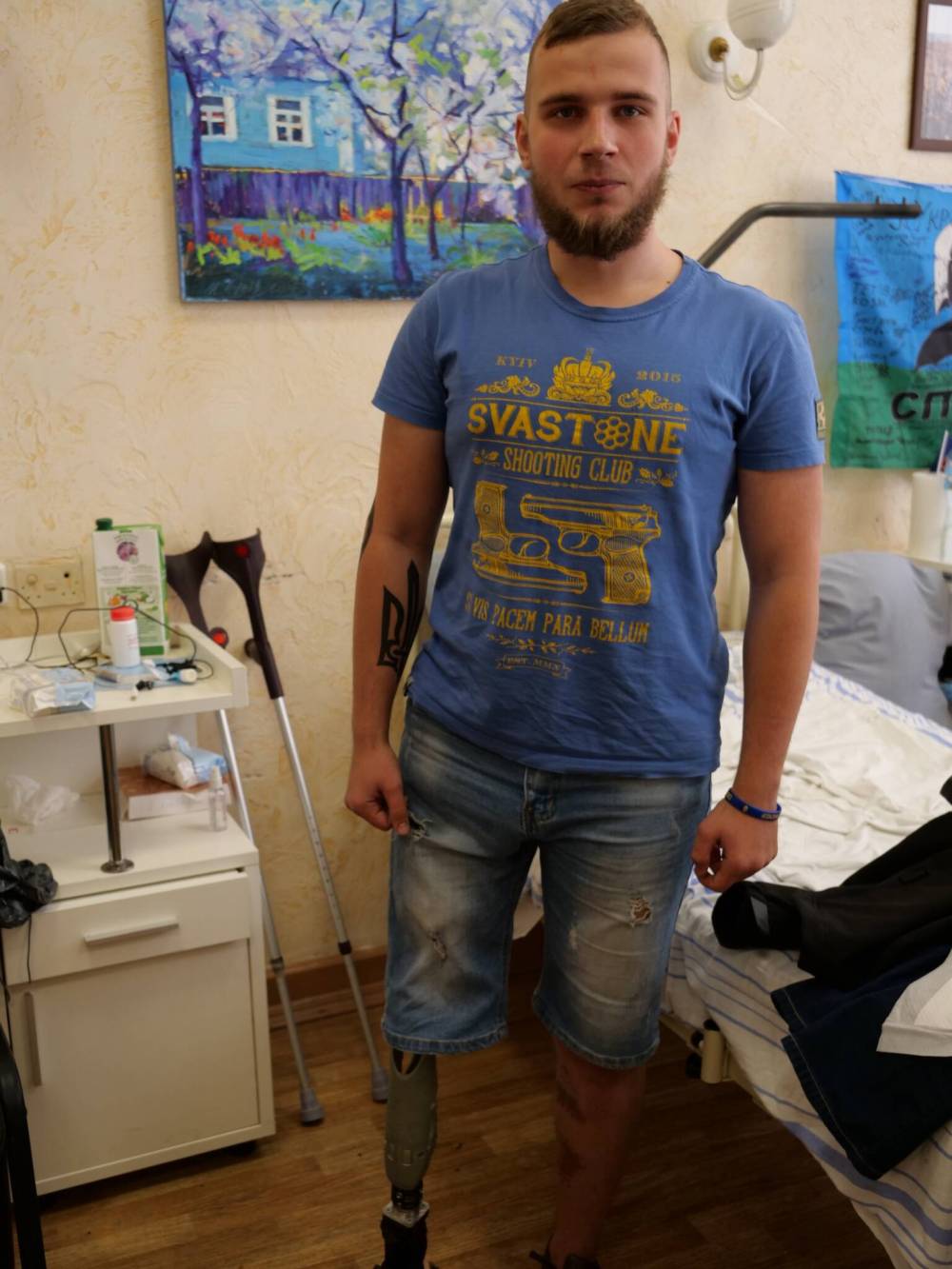
Two weeks ago, when Canadian and American troops retreated from Ukraine to NATO-allied countries, I knew Ukraine was being offered up as a country of martyrs, should negotiations fail.
Martyrs to hopefully prevent a war the likes of which we cannot imagine if Europe is swept into another world war. I think even Ukrainians who are living through this invasion understand why, now, it is too late for ground troops from Western countries to stand with Ukraine.
But what breaks my heart is that I’m the first one to heal enough from my family to be able to set foot back in Ukraine some 76 years after my baba fled. For those Ukrainians who survive this invasion, I pray the worst thing they’ll have recollections of is bombs falling while they sleep in metro stations, but should sanctions and peace talks fail to de-escalate this conflict, I doubt that will be the case.
And so the cycle of trauma will continue. Not only will unknown numbers of Ukrainians die in a war they don’t want, but the struggle to heal from the conflict will be felt for generations.
I think this is a mourning that many Canadians can feel and share. Canada has often accepted conflict refugees — Bosnians, Syrians, Sudanese, Iraqis, Afghans — we are all communities that are struggling to heal, all praying that once our hearts have mended our descendants won’t have to deal with the same pain.
I pray for peace. I pray that this cycle can still be avoided.
Sarah Lawrynuik is a freelance writer.






